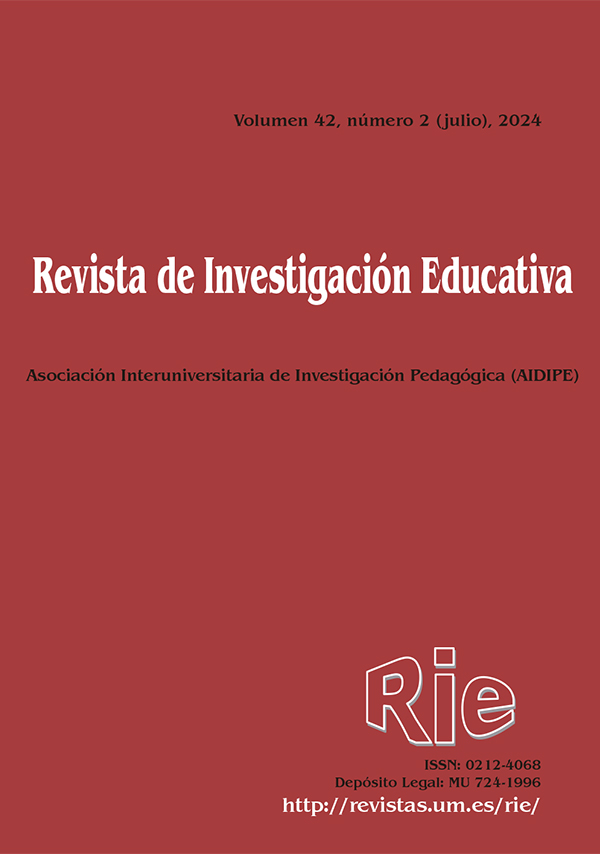Editorial 42(2)
Educational Research for a Sustainable Future
Abstract
This issue of the Revista de Investigación Educativa presents a series of articles exploring various dimensions of contemporary education and reflecting many of the commitments discussed jointly in Barcelona following the International Congress of Educational Research and the IV Meeting of Doctoral Students and Novice Researchers, organized by the Interuniversity Research Association in Pedagogy (AIDIPE) and the Universitat de Barcelona, in collaboration with the Universitat Autònoma de Barcelona, Universitat de Girona, Universitat de Lleida and Universitat Rovira i Virgili. The magazine includes works on the integration of Sustainable Development Goals in university education, the use of emerging technologies such as virtual reality, and the ethical dilemmas posed by artificial intelligence. It also addresses the improvement of digital competence in increasingly diverse environments. Additionally, studies are presented on the promotion of inclusion at various educational levels, the impact of citizen participation in Final Degree Projects, the prevention of gender violence, and conflict management in higher education to foster healthier contexts, among other topics. Through these studies, the magazine contributes to the reflection and advancement of educational practices that promote a more inclusive, equitable, and sustainable future.
Downloads
-
Abstract356
-
PDF (Español (España))150
Copyright (c) 2024 Journal of Educational Research

This work is licensed under a Creative Commons Attribution-NonCommercial-NoDerivatives 4.0 International License.
The articles and scientific documents published in RIE abide the following conditions:
1. The Servicio de Publicaciones de la Universidad de Murcia (the publisher) has the property rights (copyright) of all the documents published and allows the reuse under the user’s license indicated in point 2.
2. All documents are published in the digital edition of RIE under a Creative Commons Reconocimiento-NoComercial-SinObraDerivada 4.0 Internacional. (legal document) license. These documents can be copied, used, distributed, communicated and explained publicly if: i) the author(s) and its original source of publishing (magazine, publisher and URL of the document) are cited; ii) it is not used for commercial purpose; iii) the existence and the specifications about this license are mentioned.
3. Auto-archive’s conditions. The authors are allowed and encouraged to digitally distribute the pre-print versions (a version before evaluation) and/or post-print (a version that it is already evaluated and accepted to its publication). This promotes circulation and distribution earlier and can increase the citations and significance within the academic community.










